Top 7 Spendesk Alternatives in 2025

Spendesk has earned its place as a trusted expense management solution for thousands of companies. It offers a solid foundation for businesses looking to streamline approvals, manage corporate cards, and track team spending.
However, as organizations grow and add global operations, complex travel needs, or more advanced controls, some teams start looking for platforms that go further.
Whether you’re seeking tighter integration between travel and expense, more automation, or greater global compliance, the landscape of options in 2025 is broader than ever.
In this guide, we’ll explore Spendesk alternatives, how they compare, what they offer, and why users say Navan continues to stand out as an all-in-one platform built for the modern era of spend management.
What Today’s Businesses Need From an Expense Management Platform
Modern finance and accounting teams expect more from their expense tools. The right platform should streamline processes across departments, increase visibility, and reduce manual work, without sacrificing user experience.
Key capabilities to look for include:
- Real-time automation for expense capture and reconciliation
- Comprehensive support
- Integration with corporate travel booking and policy enforcement
- Scalable approval workflows and role-based controls
- ERP and accounting integrations
- Tax compliance support
- An intuitive user interface that drives adoption
Spendesk addresses several of these areas well, but some organizations eventually require more flexibility, deeper automation, or end-to-end integration with travel and payments. Below, we explore platforms that meet those evolving needs.
Leading Alternatives to Spendesk in 2025
1. Brex
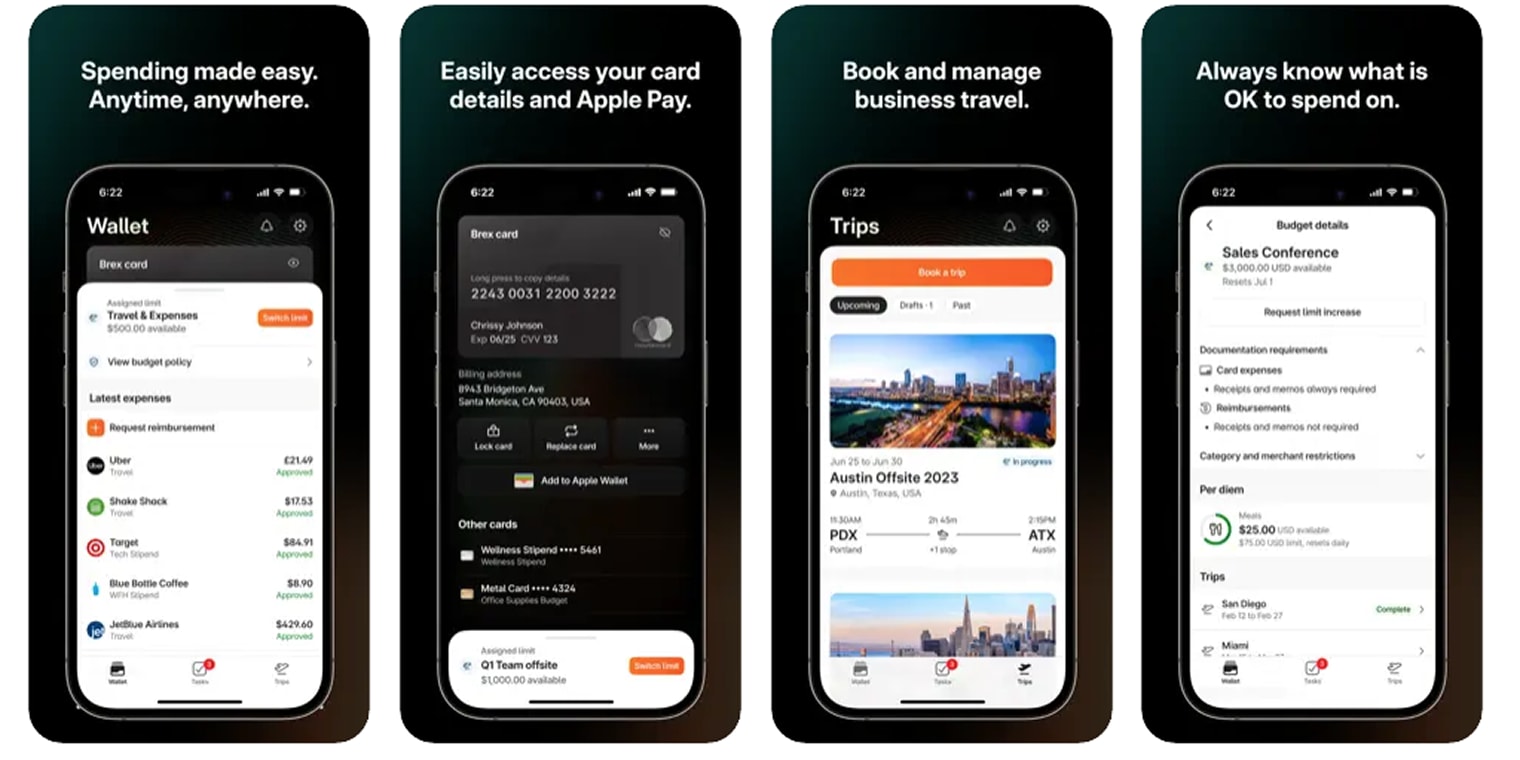
Brex is designed for startups and fast-growing global teams. Key features include:
- Flexible card limits and advanced spend controls
- International payments and multi-entity support
- Seamless integrations with major accounting tools
In 2024, a new initiative — BrexPay for Navan — was launched to simplify business travel payments for enterprises. The solution allows for seamless integration of Brex cards within Navan’s travel management platform, streamlining reconciliation for all bookings made through Navan.
Brex Pricing Overview
Brex offers three plan options:
- Essentials: Free
- Premium: $12/user/month
- Enterprise: Custom
2. Ramp
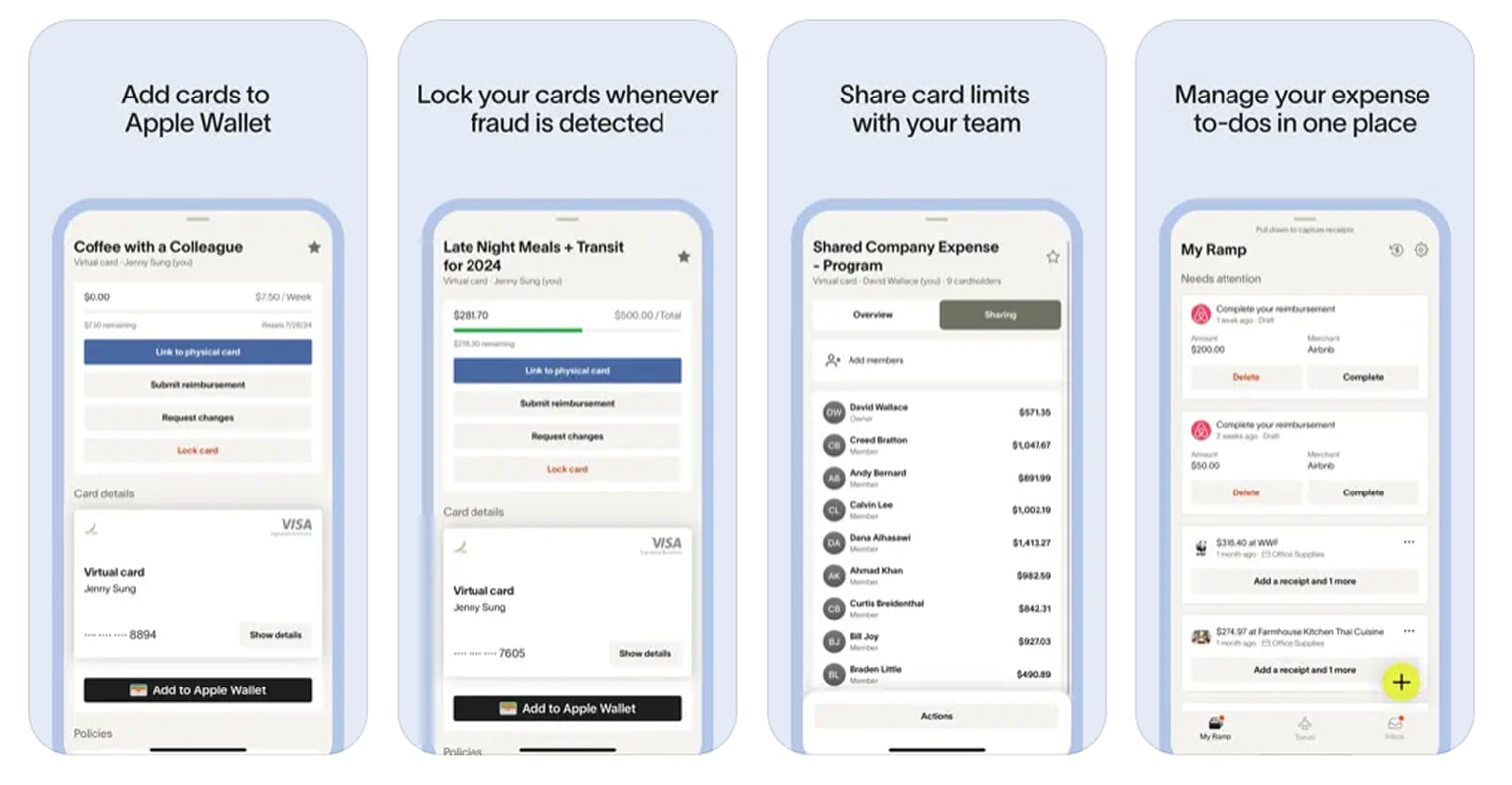
Ramp emphasizes automation and visibility. It offers:
- Unlimited virtual and physical corporate cards
- AI-powered insights and cost-saving suggestions
- Direct integrations with ERPs like NetSuite and QuickBooks
While Ramp supports spend optimization and streamlining workflows, it doesn’t offer 24/7 support, potentially limiting assistance during urgent or off-hours needs.
Ramp Pricing Overview
Ramp provides three plan options:
- Starter: Free
- Plus: $15/user/month
- Enterprise: Custom
3. SAP Concur

SAP Concur is built for enterprise organizations. It offers:
- Smart dashboards for expense management
- Deep ERP and HR system integrations
- Customizable workflows and global compliance features
SAP Concur is a well-established solution, though some users feel its interface could be more intuitive and user-friendly.
SAP Concur Pricing Overview
SAP Concur primarily offers:
- Enterprise: Custom
4. Expensify
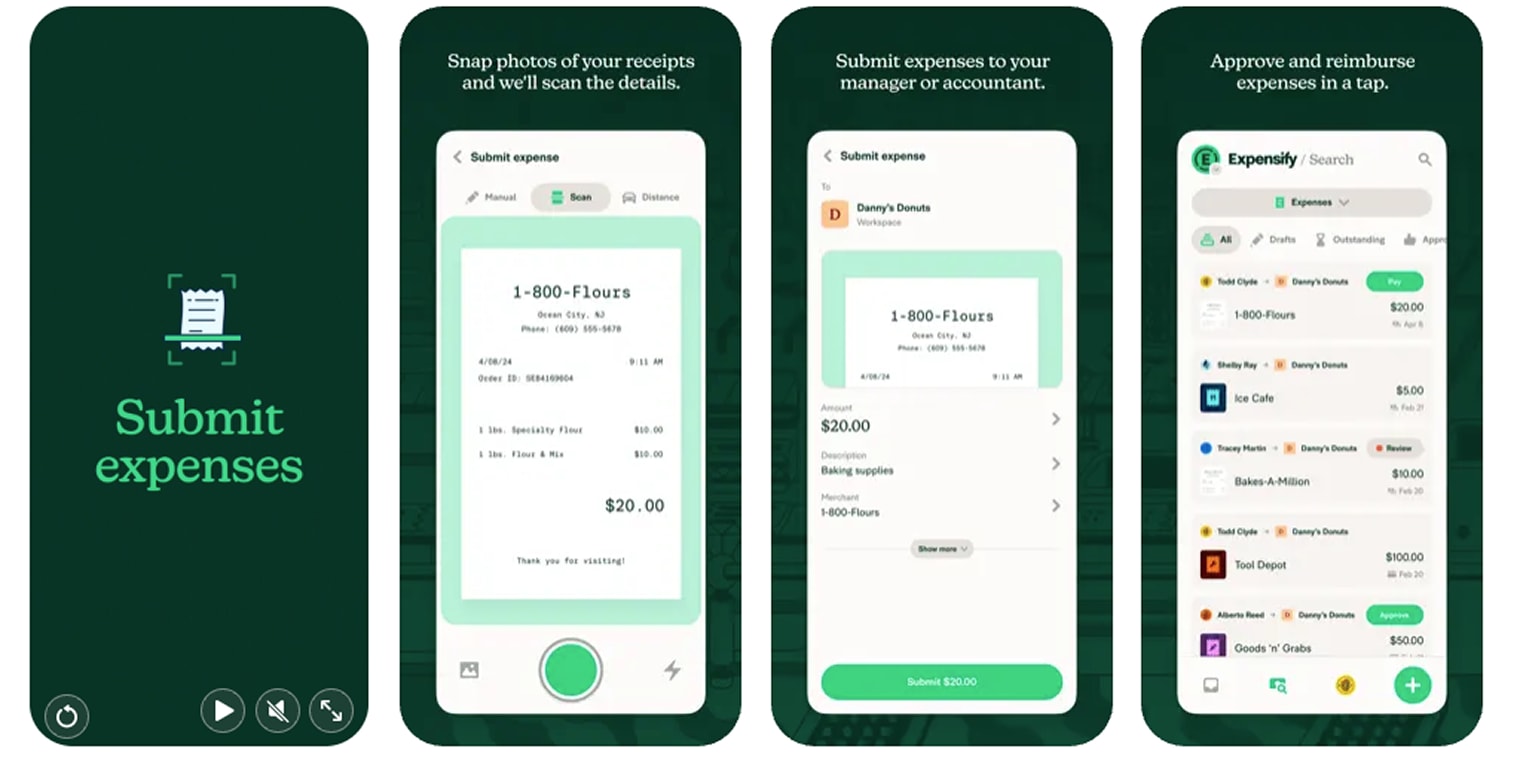
Expensify is a tool focused on core expense tracking. It provides:
- Receipt scanning via SmartScan
- Global reimbursements
- Credit card integration
Expensify offers robust expense management capabilities, though some users feel it may not fully meet the needs of more complex accounting requirements.
Expensify Pricing Overview
Expensify offers two plan options:
- Collect: $5/member/month
- Control: Custom
5. Airbase
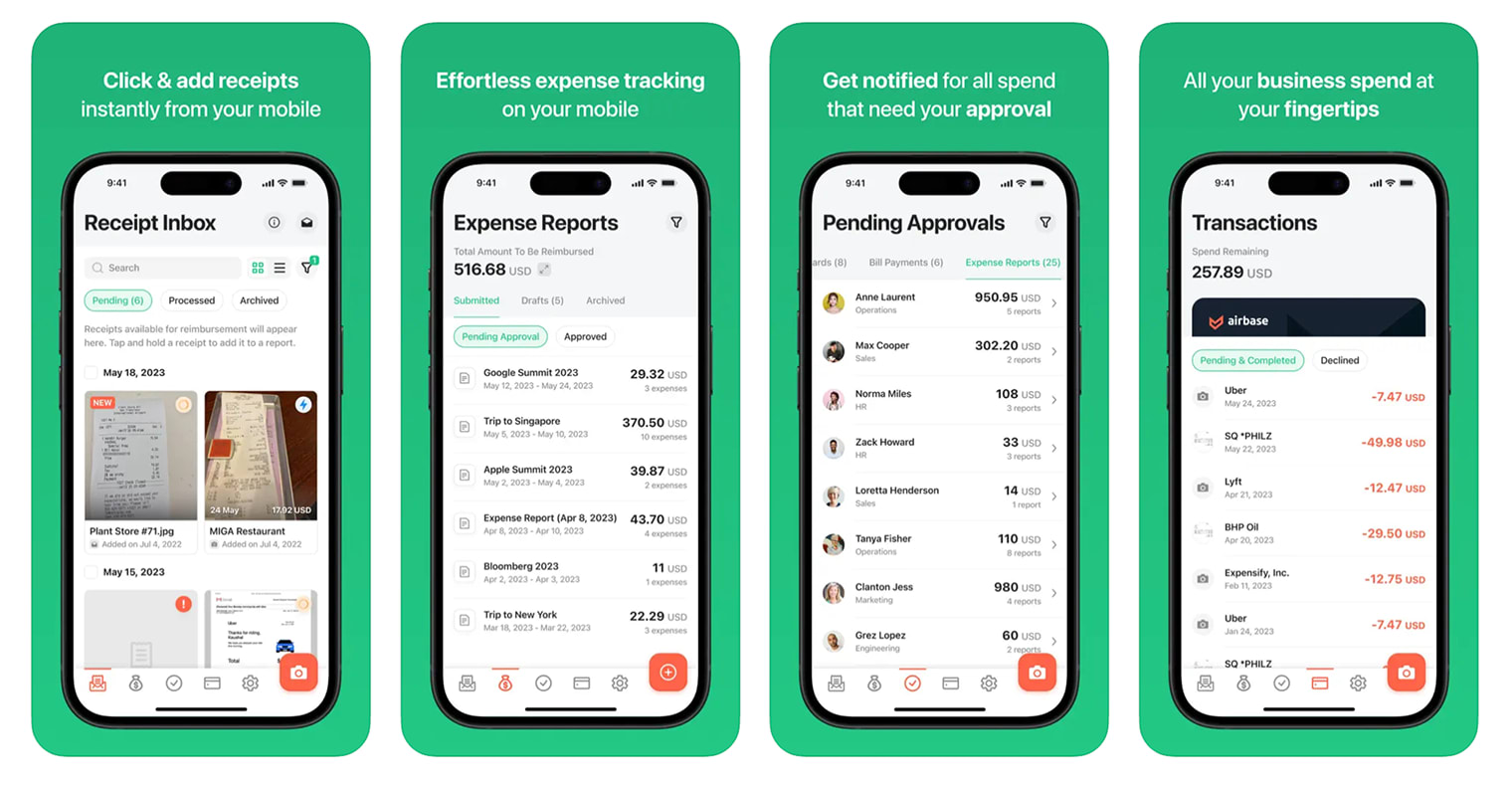
Airbase helps centralize non-payroll spend. Finance teams use it to:
- Manage reimbursements, vendor payments, and card spend
- Automate approval workflows and maintain audit trails
- Support multiple legal entities and currencies
Travel booking isn’t part of the platform, so companies with frequent travel may need an additional solution.
Airbase Pricing Overview
Airbase offers three plan options, with pricing available upon request:
- Standard: Custom
- Premium: Custom
- Enterprise: Custom
6. Pleo
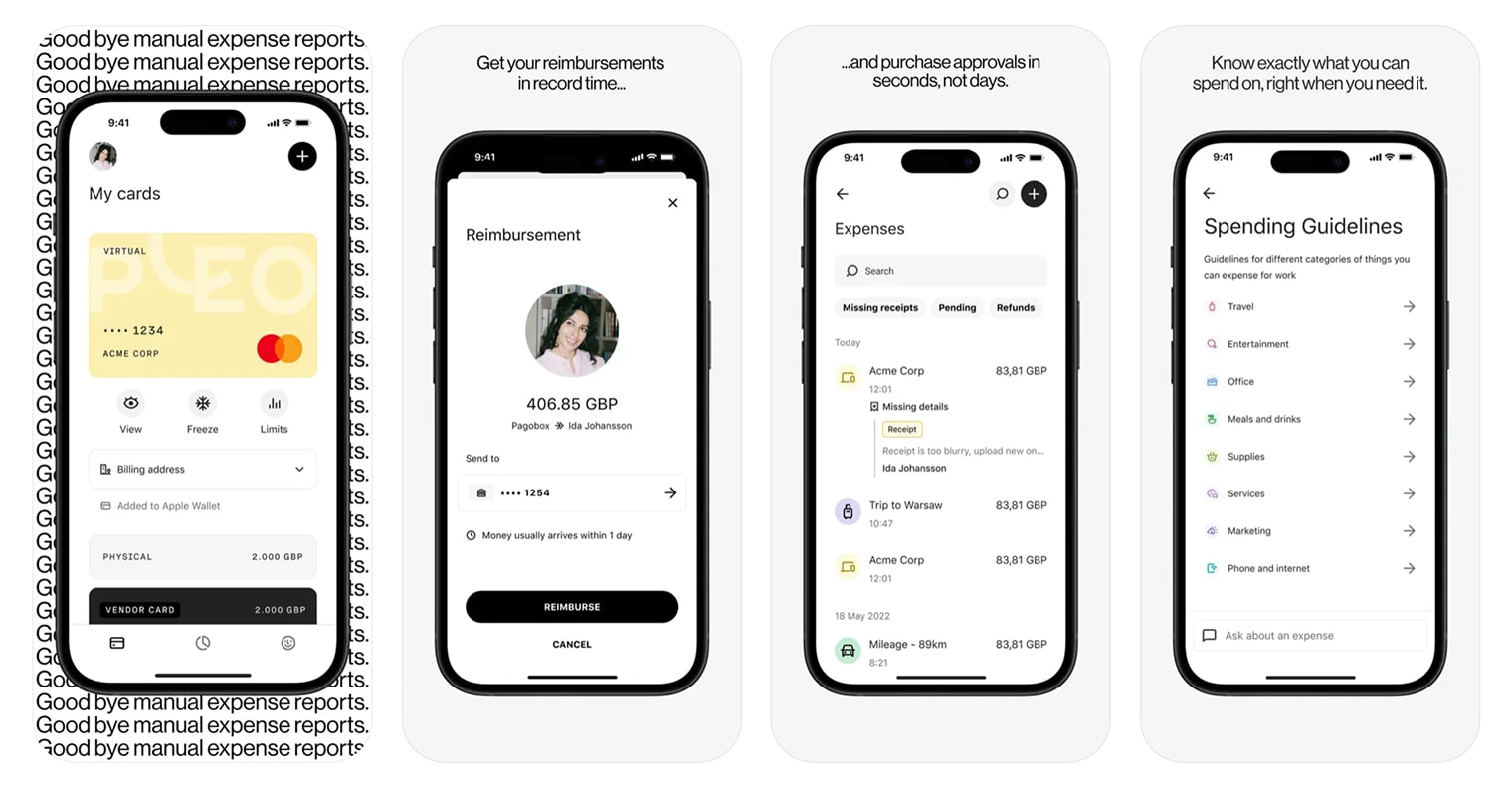
Pleo serves small and mid-sized teams with:
- Expense cards with cashback
- Mobile receipt capture and automated expense reports
- Simple approval routing for team leads or managers
Pleo offers a helpful overview of spend, though some users note that its analysis and filtering options could be more advanced.
Pleo Pricing Overview
Pleo offers four yearly pricing plans tailored to different business needs:
- Essential: $39/month (3 users), +$11/user
- Advanced: $89/month (3 users), +$14.50/user
- Beyond: $179/month (5 users), +$17.50/user
7. Navan

Navan combines travel, expense, and corporate card management in a single platform. Standout features include:
- Flight, hotel, train, and car rental bookings — all in one platform
- Corporate cards with real-time spend controls and instant reconciliation
- Advanced analytics for clear travel and expense insights
- Automated expense management with receipt capture and policy checks
- Rewards program that lets employees earn perks on smart bookings
- Sustainability tools to track emissions and support greener travel
- Seamless integration with NetSuite, QuickBooks, Xero, and Sage Intacct
- 24/7 live support for travelers and admins
Navan caters to companies of all sizes and is committed to delivering a user-centric experience. By prioritizing ease of use and intuitive design, Navan helps increase adoption rates across teams.
The all-in-one platform streamlines travel and expense management, saving valuable time and reducing costs for businesses.
Navan Pricing Overview
Navan offers two plan options, with pricing tailored to company size:
- Navan Business: Free
- Navan Enterprise: Custom
Final Thoughts
Spendesk works well for companies focused on team-level spend and simple workflows. However, as businesses grow by adding international travel, more departments, or stricter compliance requirements, other platforms might better support long-term goals.
Choosing the right solution means looking at your needs as a whole and finding a platform that can grow with your company, supporting you every step of the way as you evolve and succeed.
Looking for an all-in-one platform that simplifies travel and expense management? Request a demo to see how Navan helps teams unify spend, streamline approvals, and gain real-time visibility across the business.
This content is for informational purposes only. It doesn't necessarily reflect the views of Navan and should not be construed as legal, tax, benefits, financial, accounting, or other advice. If you need specific advice for your business, please consult with an expert, as rules and regulations change regularly.
More content you might like
Take Travel and Expense Further with Navan
Move faster, stay compliant, and save smarter.